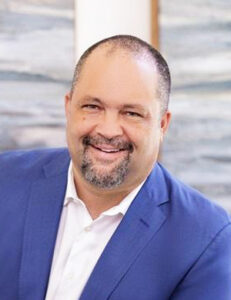
By Ben Jealous
Guest Column
What is one thing – just one – you can agree on with someone on the opposite side of the political divide? The late General Colin Powell once told me, “Figure that out and you can get a lot done. And as you win one victory together, you might just discover along the way that there’s something else you agree on.”
Our nation seems utterly divided. Many of the wounds that have been torn open in these last few election cycles are real and painful. But too much focus has been placed on further tearing open those wounds rather than healing them. One way we can heal them is simply by rolling up our sleeves and getting to work on the things we can agree on.
One thing Dr. Martin Luther King taught his lieutenants, several of whom trained me when I was a young organizer, is that if you are comfortable in your coalition, your coalition is too small.
We need unlikely allies and uncomfortably large coalitions. Coalitions of what can seem like strange bedfellows get things done. When I served as national president of the NAACP, we brought together prison guard unions, conservative governors, and Democratic legislators to dramatically shrink prison systems and allow people who served their sentences to regain their right to vote.
Bipartisanship itself can be a powerful tool and vehicle for progress. Here are a few examples, just from recent or ongoing environmental fights for legislation at the federal, state, and local levels.
We know that Donald Trump and his allies in Congress are close friends of the fossil fuel and other extractive industries. As such, one might assume Republican support for conservation efforts would be hard, if not impossible, to find. But one of the green movement’s great victories at the federal level during the first Trump administration was passage of the bipartisan Great American Outdoors Act. The bill provided permanent funding for important conservation and public recreation projects across the country and addressed a multi-billion-dollar maintenance backlog in national parks and other public lands. At the time, then executive director of the Sierra Club, Michael Brune, called it “one of the most important conservation bills in a generation.” It passed in a closely divided US Senate with overwhelming bipartisan support, by a vote of 73-25.
We now hope to replicate that success with passage of the bipartisan EXPLORE Act during the current lame duck session or in the next Congress. That bill is a wide-ranging package of popular policies including the Outdoors for All Act and expansion of the Every Kid Outdoors program to make national parks and public lands accessible to more of America’s youth.
One of my favorite current examples of a powerful multi-partisan, common ground-finding coalition at the state level is in the fight to stop a dangerous carbon capture pipeline in Iowa. A bill supported by that coalition to slow approval of land seizures for the project passed the Republican-majority Iowa House in March by a whopping 86-7 vote. That bill was unfortunately killed in the state Senate, by just a handful of powerful senators, before it could receive a floor vote. But coalition organizers are still fighting, and they believe the bill – or one similar to it – has the support to pass once they can get it to the Senate floor.
At the local level, I heard a story just this month that illustrates how, even when things seem bleak, there are still plenty of opportunities for progress. A Sierra Club volunteer leader receiving a lifetime achievement award for her work spoke to a crowd that was no doubt devastated by the results of the recent election. She told them she had, just the day prior, attended a board of supervisors meeting in her community where she and other community members convinced the body – composed entirely of Republicans except for one Democrat – to ban gasoline-powered leaf blowers. It was a reminder of how often straightforward local community organizing transcends politics.
This is just a small sampling of countless examples across the country of Americans who are not letting partisanship stand in their way as they work to make things better for their families and communities. The common ground is there if we bother to look for it. And look we must if we care about getting things done.
We do not have to agree on much for us to thrive together, in our families and communities, and as a country. For those of us fighting to get something done, we must remember: coalitions that include a variety of viewpoints are coalitions that ultimately win. General Powell’s words still ring true.
Ben Jealous is the Executive Director of the Sierra Club, former CEO of the NAACP and a Professor of Practice at the University of Pennsylvania.
